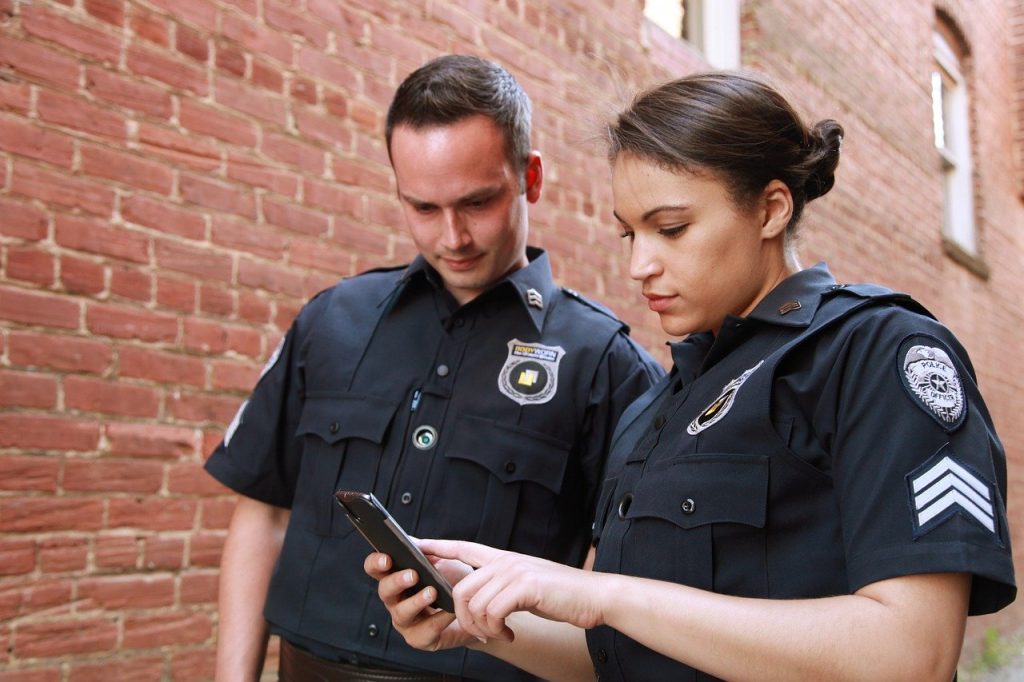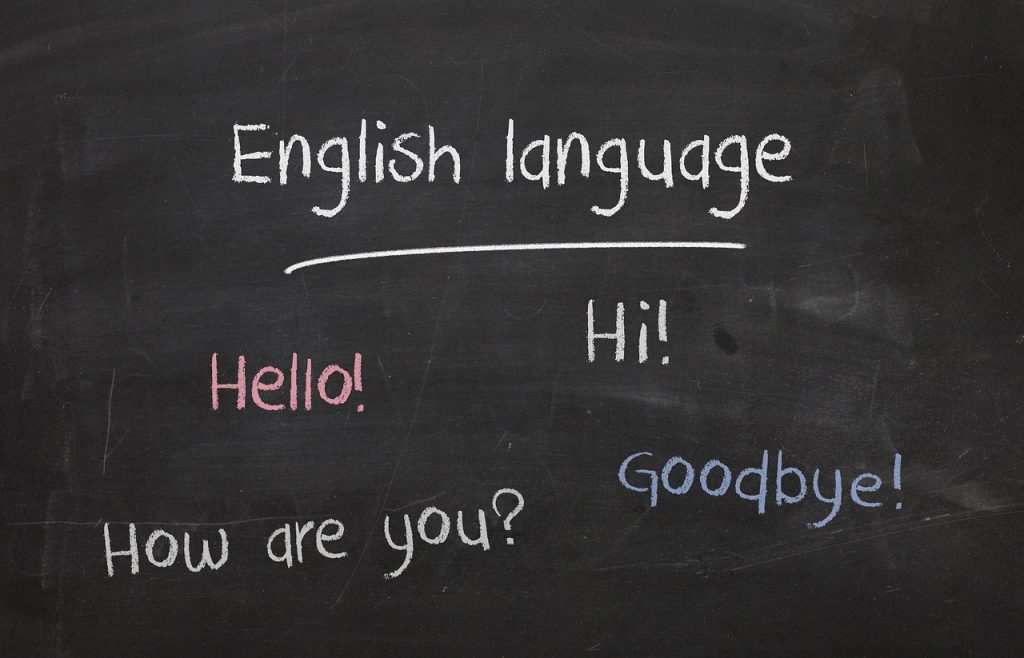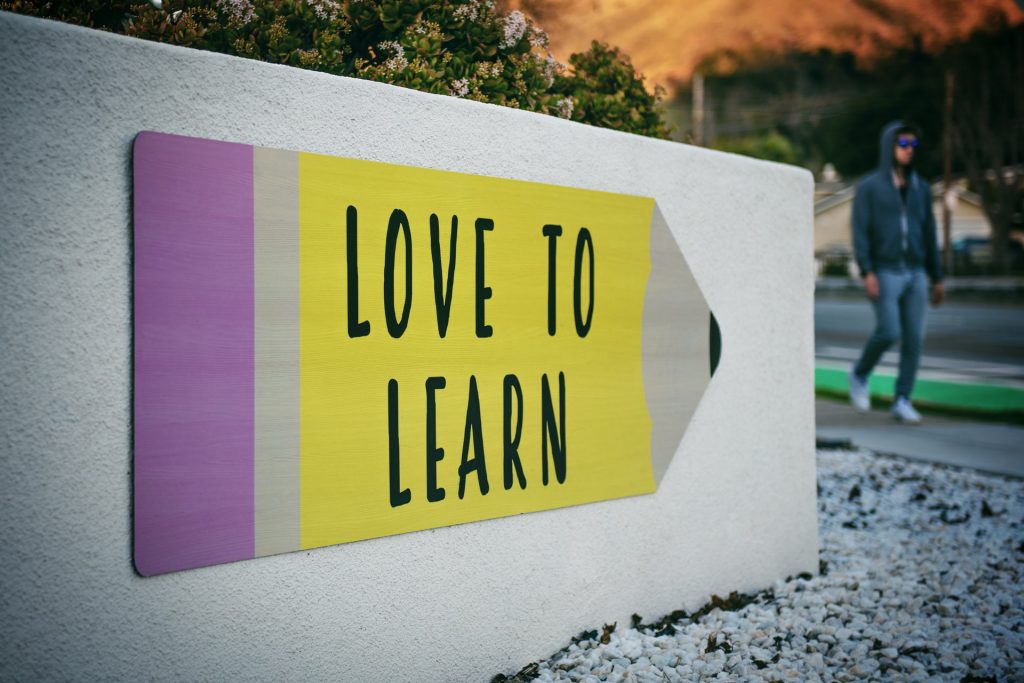Students' Column
Preparing for Success Throughout The Police Officer Application Process

It’s no secret that the majority of people will fail the police officer selection process. After all, working as a cop is no easy job and with the huge amount of responsibility riding on the police, selecting the right recruits is absolutely essential.
If you’re thinking of becoming a police officer, you’re up against some strong competition. Every year, hundreds of people apply to various police departments and the majority of them will be rejected. If working as a cop has always been your dream, then that’s the last thing that you want to happen to you.
The good news is that by putting in the work, understanding what’s expected of you and making sure that you shine out from the rest as an applicant to take notice of, you can improve your chances of being accepted and getting started with initial police officer training as soon as possible.
If you’ve just started out down your pathway of becoming a cop, you’re going to want to do the following before you even apply:
Study Something That Demonstrates Your Commitment to the Field:
Sure, you don’t need a degree in being a police officer to work as one, but having a qualification behind you that demonstrates your interest in, and commitment to, the field can certainly help you stand out throughout the application process. Some of the job degree options that you could go for in order to stand out as an applicant and be in with a better chance of advancing your law enforcement career in the future include:
- Social Sciences degrees: Psychology, Criminology or Sociology, for example
- Criminal Justice and Law Enforcement
- Law Enforcement and Public Safety
- Law
- Foreign Languages
- Finance or Accounting
- Computer Science
Check out this post from Wilfrid Laurier University to find out more about the best degrees for an aspiring police officer to take.
Understand What Makes a Good Cop:
When you understand what recruiters are looking for in applicants, you’re in a better position to demonstrate to them that you have got what it takes. After all, they are looking for individuals that clearly show that they have the makings of a good police officer.
- Being Emotionally Aware: There are various ways in which you can be emotionally aware. Relating to others, understanding their difficulties, and showing empathy are just a few. It’s likely that you will be given role-play activities designed to demonstrate your emotional awareness.
- Taking Ownership: As a police officer, it’s essential that you are able to take responsibility and ownership for problems. For example, if you turn up to a bar and there’s a fight breaking out, you’re going to be responsible for resolving the situation – after all, it’s your job.
- Collaboration and Teamwork: To work successfully, police officers must be part of a close-knit team. You’ll be working with lots of other people both inside and outside of the police department, whether it’s the other emergency services, members of the public, or local authorities.
- Critical Thinking: During the application process, your critical thinking skills are going to be tested a lot. As a cop, you’ll need to be able to critically analyze and evaluate situations in order to make the best decisions on your feet. You need to be able to demonstrate that you can look at the information you have with an open mind and be innovative in order to make the right calls.
Demonstrate Your Skills and Qualities:
Throughout the application process, it’s important that you involve the demonstration of the skills and qualities you possess – the ones that’ll make you a great cop – in everything that you do. Be impartial; it’s all about understanding people’s needs and taking them into account when you make decisions. Demonstrate that you are able to do this, whether you’re going through group interviews and role-playing scenarios, or even filling out an application form.
You should also demonstrate that you’re able to treat everybody in a fair and respectful manner; this is absolutely crucial when working for the police today. Recruiters will be looking for you to demonstrate this at every step of the process, whether it’s in your application form responses, interviews, or assessment centers.
Nailing the Interview:
The interview really gives you a chance to shine one-to-one with the recruiters and demonstrate your skills, experience, and knowledge. So, getting it right is absolutely crucial. During the interview process, answer questions with evidence-based responses using the STAR technique, which stands for:
- S- Situation
- T- Task
- A- Action
- R- Result
For example, you might be asked to describe a time where you were able to solve a difficult problem when under pressure, and you’ll need to describe what situation you were in and what you did.
- Situation: Explain what the situation was that you had to deal with
- Task: Explain what you had to do in order to achieve the end goal
- Action: Tell the interviewer what action or actions you took
- Result: Describe the result that you got – always choose a situation in which the end result was positive following the actions of yourself and others
Some questions that you might expect to be asked include:
- Describe a time when you have supported a vulnerable person or group
- Describe a time when you assisted somebody to overcome a difficult problem or situation.
- Describe a time when you have taken responsibility for solving a difficult problem.
- Describe when you have used your initiative in a situation.
You should also be prepared for more probing questions, such as:
- How did you feel in that situation?
- Would you do something differently if you were in the same situation again?
- Do you feel that you coped well with the situation?
- Why do you think that the other person responded or reacted that way?
These questions are all designed to get answers about your personality, so you need to reflect and analyze your performance. It’s a good idea to go through some mock police interviews so that you’re fully prepared.
Getting into the police is very competitive, so make sure that you’re prepared to stand out and shine in the applicant pool.
Business
Learn English quickly and effectively with the Callan Method

In a world where all countries and cultures are interconnected, learning different languages has become mandatory. To do so effectively, you should try the well-known Callan Method, with which you’ll easily master English in less time than you imagine.
The learning of the English language has gained great importance in the job and academic world due to the globalization our society has experienced and the fluid communication constantly occurring between all countries. Due to these factors, and if you want to grow as a person, mastering English is crucial and something you must do to increase your opportunities in the current world. Therefore, it’s best to explore efficient methods to learn it, and one of them is undoubtedly the Callan method.
The Callan Method is totally different from conventional methods for learning English, and it has shown to be effective for those who decide to start their journey of learning this language.
What is the Callan Method, and how does it work?
Since ancient times, many language teaching methods have been developed with different approaches and types of progressions, of which one of the most effective is the Callan Method. Developed by Robin Callan in the 1960s, this method stands out for its intensive approach aimed at quickly and effectively imprinting the language into the student’s brain.
This is achieved because it is based on fundamentals such as repetition, constant real-time practice, and immediate correction of any error. With this method, students are constantly exposed to oral questions and answers in English, with repetitions of the same and, above all, error corrections.
Upon entering one of these classes, you will quickly notice the difference from a regular English class. The teacher will be speaking in English at a natural speed, and you won’t touch a pen or paper throughout the entire lesson, but rather respond to oral questions and participate in structured conversations.
Thus, the Callan method mainly emphasizes improving fluency in speaking and the auditory ability to understand the language, skills that will be tested in real-life situations. Repeating this a sufficient number of times results in a student with fluency and confidence in the language, ready to face the world in English and engage in advanced conversations with native speakers of this language.
Benefits of the Callan Method
This method, unlike many others, offers a variety of advantages for students that make it stand out from the crowd and position it as one of the best, as studies have confirmed that with this method it is possible to learn English up to 4 times faster than with any other.
One of these advantages is the fact that when you start studying with this method, you don’t learn grammar but rather dive straight into the world of English. This might sound counterproductive, but it’s quite the opposite, as it allows you to start familiarizing yourself with the sounds and vocabulary, even as a beginner.
Furthermore, being based on a primarily oral learning system, you will improve your fluency in speaking and your listening skills will progress effectively and rapidly. These two skills are the ones you will use the most in real life, so the Callan Method is perfect if you want to go to an English-speaking country.
Beyond the typical generic conversations you would learn in any class, the Callan Method offers structured conversations that encourage you to use new words and phrases in each one, emphasizing learning with each session to make the most of your time.
By receiving corrections from the teacher immediately after making a mistake, not only do you have the chance to correct it, but little by little you gain the confidence necessary to speak and master the language as if it was your mother tongue. So if you are looking to learn English easily, or to further improve your English skills, the Callan Method is definitely worth diving into.
Students' Column
How Students Are Learning To Focus Better

Being a student can be tough for a lot of people, and it is certainly something which can often prove to be difficult to do right. One of the main issues that are always going to be happening for students everywhere is that it can be hard for a lot of students to focus on their work for that long. However, this is vital if someone is going to be able to put their all into their work and get the results they are looking for. Here are some of the ways that students are now learning to focus a little better on their studies.
Putting The Phone Down
In many respects, the smartphone is the enemy of concentration – and a lot of students these days are starting to realize it. The simple act of putting the phone down for a while can dratically help anyone to concentrate better and focus on what they need to, so that is something that students are doing more effectively now. It can also help to turn it off or even put it somewhere far away while studying, such as in the other room. This is a great and very important way to focus better right now for students everywhere.
Using Supplements
There are many supplements out there in the marketplace now that are designed to help with concentration and focus. Of course, it can often prove difficult to know which of these are actually worth taking and work well, and which might not be quite so worthwhile. One good example of a supplement that does seem to work well for improving focus is CBD oils such as those at CBDistillery. These can often seem to be highly effective, and they are definitely something that students can consider in order to try and focus a little better each day.
Getting More Sleep
Sleep is a vital factor in how well a person can concentrate. Someone who is not getting enough sleep is going to find that this can drastically affect their ability to focus, so this is another area that many students are starting to look into more and more. In order to get more sleep, however, they might need to make many changes, and it’s something that for some students can simply escape them for quite a long time. However, it is worth pursuing for anyone who wants to be able to focus better on their work.
Setting Up A Distraction-Free Space
Distractions can be all too easy to come across, and this is one of the major ways in which someone is going to often struggle to concentrate properly on their studies. However, the simple solution to this problem is to set up a distraction-free space, which is what a lot of students are now doing, and this does seem to be incredibly effective for a lot of people. So that too is another really important thing that students can attempt in order to concentrate more, and it’s looking like more people are doing this.
Students' Column
8 Tips On How To Be The Best Teacher

Being a teacher in a day and age when teachers are constantly being attacked for their inability to educate students can be quite a daunting prospect. Even when teachers try hard, they may encounter parents who complain about what they’re teaching or how they’re teaching it. In any case, it’s always best to learn from those who have been in the trenches before you.
Here Are 8 Tips On How To Be The Best Teacher
1. Get To Know Your Students
One of the best ways that you can improve your teaching is by knowing who your students are and what they want. However, this takes time; it’s something you build through the school year. So begin by getting to know their names as soon as possible – then start learning other things about them: interests, background, ambitions, etc.
This will help you plan lessons that meet their individual needs and wants, resulting in a more enjoyable experience for both you and them. A good rule of thumb is to ensure you take part in a cpr certification course online, as you never know when it might come in handy.
2. Find Out How Each Student Learns
No two people learn in exactly the same way. Therefore, you should find out how each of your students learns to understand how they absorb information from your lessons.
For example, some people prefer listening while others prefer reading, some learn best from demonstrations, and others need to see a diagram or image. This will help you plan your lessons so that everyone has a chance to learn.
3. Encourage Your Students To Ask Questions
Students often fail to ask questions after a class because they don’t want to ‘look stupid’ or embarrass themselves in front of the rest of the class. Try to encourage your students to ask questions by emphasizing that there’s no such thing as a silly question – the only stupid question is the one that wasn’t asked!
4. Encourage Group Work Between Your Students
Group work can be an excellent way of helping your students learn. Not only does it help those who find it hard to participate in class, but it also helps those who are more confident as they have to explain themselves and defend their reasoning. With a bit of guidance from you, many classes will soon grow closer as friends and work better together as teammates.
5. Give Regular Feedback On Performance
Giving regular feedback on performance during lessons will help show you what areas each student needs extra tuition in. It will also allow you to give quick guidance on how they can improve their performance next time – saving valuable lesson time.
6. Encourage Your Students To Help Each Other
Utilize peer-learning by encouraging your students to help one another – this not only helps them prepare for the real world but also saves you time when planning lessons. For example, if you need students to research various facts and figures, why not set up groups of two or three? They can then share ideas and resources to complete the work in less time.
7. Reward Good Performance
Everyone responds well to positive feedback, and with careful planning, you can use this in your teaching style to encourage good performance from your students. For example, if someone is doing particularly well in class, why not surprise them with a special reward? It doesn’t need to cost money; examples could include letting them eat lunch first or giving them some extra playtime at break time.
8. Keep Your Class Active
One of the most important things about being a successful teacher is ensuring that your students are actively taking part in all aspects of each lesson. If you feel that some lessons have become too passive, try to inject more energy into your lessons by making them more interactive. This will keep students interested, and they’ll retain more of what you’re teaching.
-

 Blog Management11 months ago
Blog Management11 months agoWhat Is Your Website Content Missing? Three Things To Add ASAP
-

 Business9 months ago
Business9 months agoLearn English quickly and effectively with the Callan Method
-

 Sports10 months ago
Sports10 months agoA-Champs Reaction Training Lights: Your Path to Soccer Excellence
-
Travel10 months ago
Discovering Valencia and the Valencian Community: an unforgettable holiday experience
-

 Travel9 months ago
Travel9 months agoDiscover the finest tours across Morocco: an adventure oasis
-

 Sports9 months ago
Sports9 months agoBody Armor Plates – Essential Considerations for Selecting the Right Protection
-

 Travel7 months ago
Travel7 months agoImmerse Yourself in Nature: Explore Forest Bathing with a New Guidebook
-

 Europe7 months ago
Europe7 months agoBarcelona and Athens: cities that will leave an everlasting impression
















